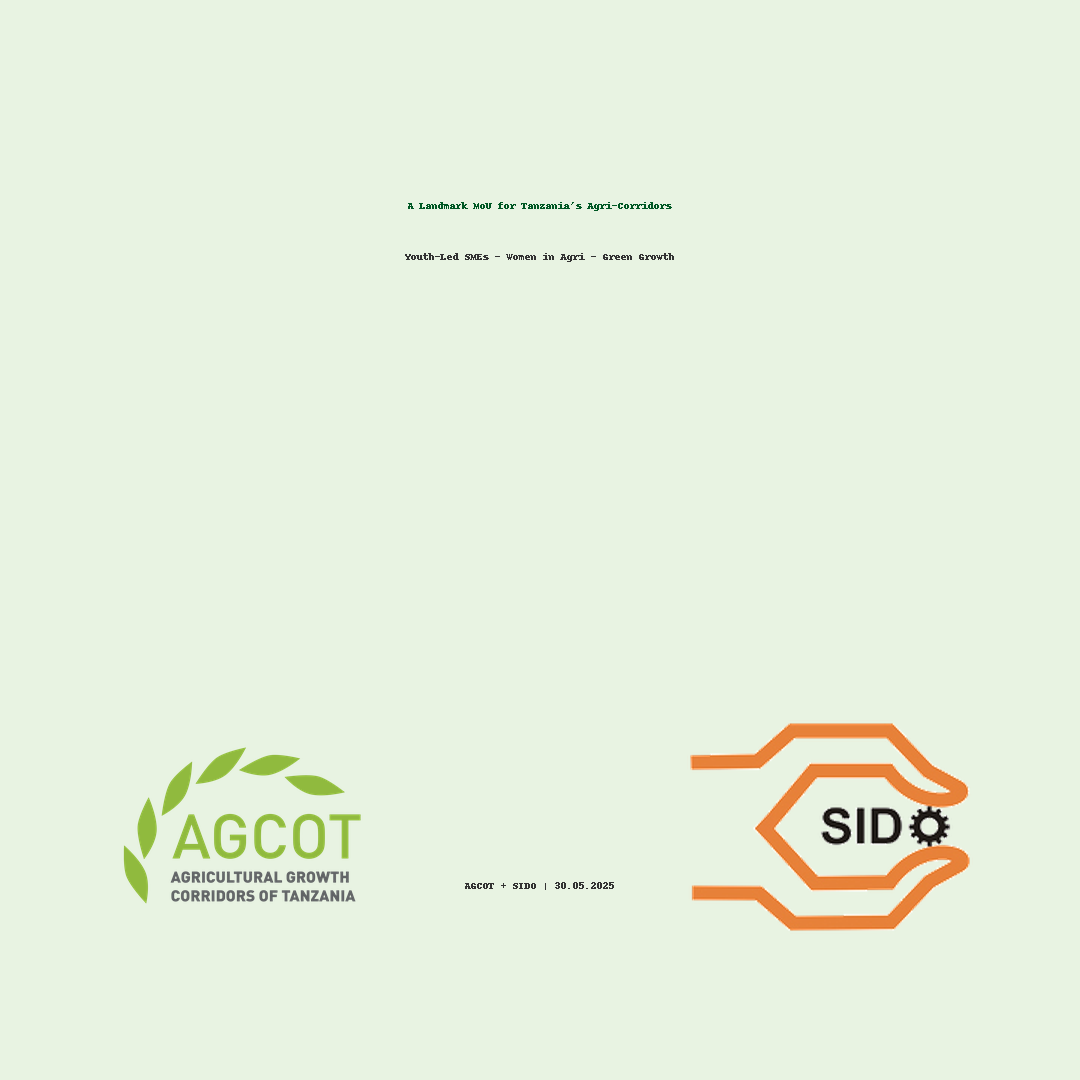
DAR ES SALAAM, Tanzania – June 12, 2025 – Tanzania has launched an ambitious new strategy to industrialize its agricultural backbone, uniting public and private sector forces in a landmark partnership aimed at boosting food security, creating a new generation of entrepreneurs, and positioning the East African nation as a competitive force in continental trade.
A five-year agreement signed late last month between Tanzania’s state-run Small Industries Development Organisation (SIDO) and the public-private sector-led Agricultural Growth Corridor of Tanzania (AGCOT) Centre establishes a formal roadmap for transitioning small-scale farmers and producers into commercially viable, modern agribusinesses.
The partnership represents a significant step in Tanzania’s economic strategy, aiming to transition from subsistence farming to value-added production.
“This partnership with SIDO reinforces our shared vision of enabling youth-led Agri-SMEs to grow, scale, and integrate into structured markets,” said Geoffrey Kirenga, CEO of AGCOT. “While the signing was conducted remotely, the impact will be tangible on the ground.”
The collaboration is built on a model of combining government infrastructure with private-sector agility. SIDO’s Director General, Eng. Prof. Sylivester M. Mpanduji, noted this strategic advantage: “This MoU with AGCOT is timely and essential. Our institutions bring complementary strengths—SIDO’s infrastructure and enterprise development experience combined with AGCOT’s agribusiness network and value chain coordination will make a real difference.”
Why It Matters: A Model for African Growth
For international observers and investors, this initiative is significant for several reasons. It represents a tangible effort to de-risk agricultural investment and create a more predictable and supportive environment for growth. The partnership serves as a potential blueprint for other African nations facing similar challenges in transforming their agricultural sectors.
Crucially, the plan is explicitly designed to prepare Tanzanian enterprises for the African Continental Free Trade Area (AfCFTA), signalling a clear intention to move from exporting raw commodities to trading processed goods across the continent. This focus on value-chain development, encompassing financing and technology, logistics, and market access, addresses the key barriers that have historically limited the growth of small-scale agribusiness in the region.
The core of the strategy focuses on four key pillars:
- Tackling the Finance Gap: The partners will establish a joint Matching Grant Facility to help small enterprises afford modern equipment and processing facilities. This will be paired with SIDO’s existing credit lines, providing a multi-layered financial support system.
- Building Human Capital: The program will offer extensive business incubation, acceleration services, and hands-on entrepreneurship training through SIDO’s national network of regional centres.
- Integrating Technology and Sustainability: A major push will be made to introduce climate-smart technologies, such as solar dryers and efficient irrigation systems. The agreement mandates a strong focus on inclusion, with a target of at least 50% participation from women and youth-led enterprises.
- Forging Market Links: The plan involves developing critical infrastructure, such as cold chains and rural roads, while actively connecting producers to new domestic, regional, and international markets.
By systematically addressing these foundational challenges, Tanzania aims to unlock the vast potential of its agricultural land and workforce, setting a new benchmark for sustainable agro-industrial development in Africa.
